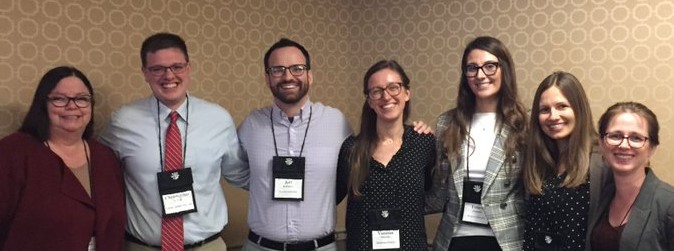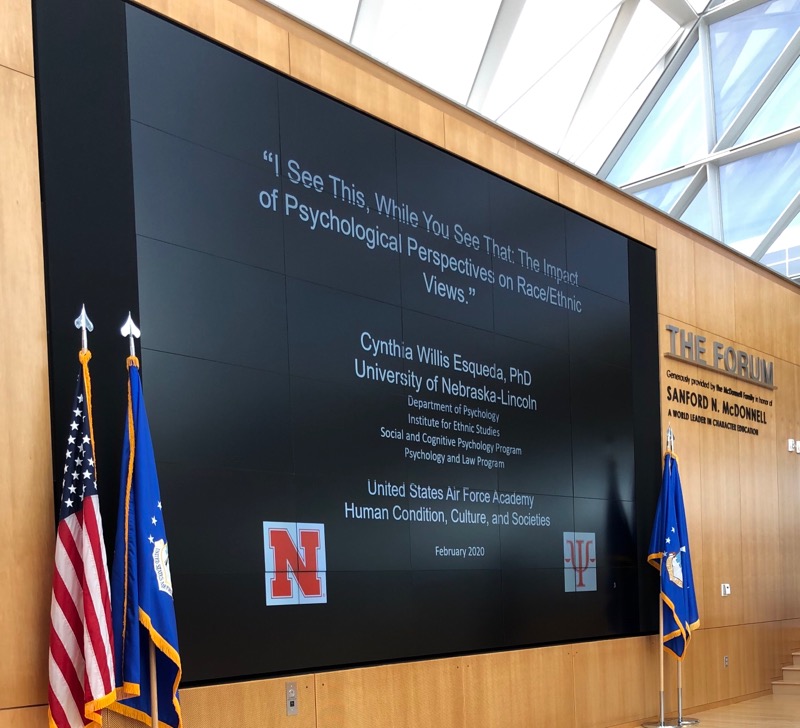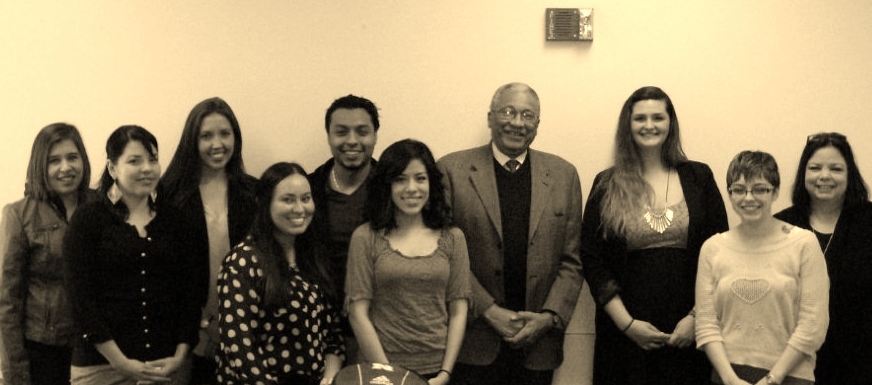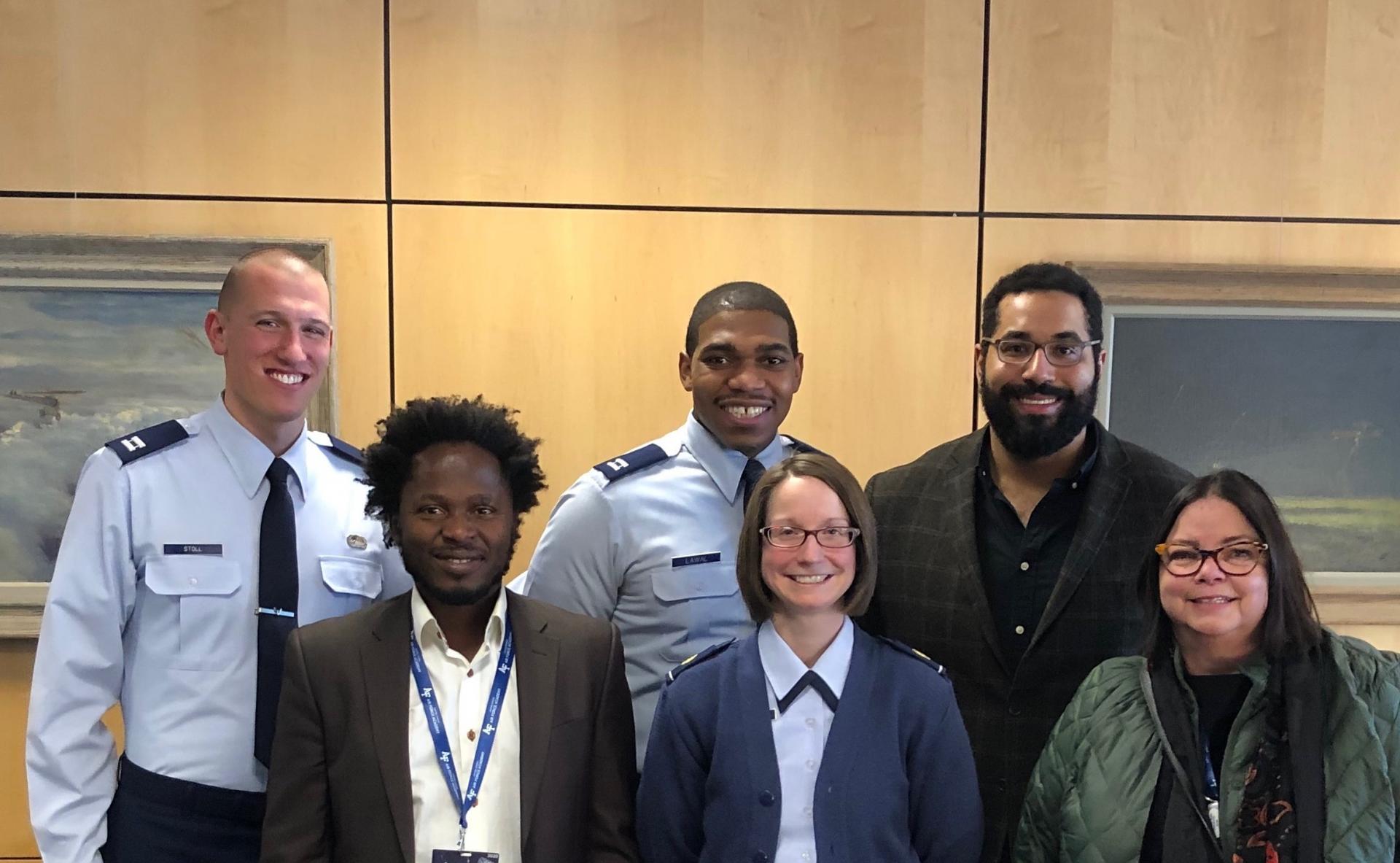The research in the lab is focused on the social cognitive processes and motivations that accompany the constructs of race and ethnicity and produce biases. Our research examines the origins of "racial" and ethnic stereotypes and their influence on the processing of social information and interpretation of social behavior. For example, we examine the influence of racial and ethnic bias on culpability attributions in the legal system. We are interested in ideology and the effect on attributions and decision making for ethnic groups, in areas such as immigration and justice issues. We examine the ways in which ethnic identity can effect daily life, including as a buffer for the effects of bias. Students interested in potentially joining the lab may contact Gabriel Zita at gzitaaraujo2@huskers.unl.edu.
Article of interest: Donohue & Fisher (2023). Accusation Is Not Proof: Procedural Justice in Psychology. Clinical Psychological Science, 11(4). https://doi.org/10.1177/21677026231159564
Article of Interest: Kachanoff et al (2023). When Do White People Support Anti-Racist Messages? https://spsp.org/news/character-and-context-blog/kachanoff-kteily-gray-anti-racism-critical-race-theory.
National Academies of Science. Structural Racism and Rigorous Models of Inequality (2023) for useful information on racism. More information at https://nap.nationalacademies.org/resource/26690/interactive/?utm_source=All+DBASSE+Newsletters&utm_campaign=aac8c7c8e0-interactive-structural-racism&utm_medium=email&utm_term=0_e16023964e-aac8c7c8e0-206749197.
See the Anti-Bigotry Report at https://www.bu.edu/antiracism-center/files/2022/06/Moving-Towards-Antibigotry.pdf
Dr. Willis Esqueda is now a Research Fellow for Boston University's AntiRacism Research Center and is taking part in a convening of top experts in the field. See the details at https://www.bu.edu/antiracism-center/antibigotry-convening/
Recorded talk at the United Air Force Academy, Colorado Springs, CO. See https://www.youtube.com/watch?v=oA3o9KNO-7M
A great article by Derald Wing Sue. Sue, D. W. (2021, December 16). Microaggressions and the “Lived Experience” of Marginality. APA Division 45, Cultural Diversity and Ethnic Minority Psychology. See at http://division45.org/microagressions-and-the-lived-experience-of-marginality/
Psychology and the need for change. Buchanan, N. T., Perez, M., Prinstein, M. J., & Thurston, I. B. (2021). Upending racism in psychological science: Strategies to change how science Is conducted, reported, reviewed, and disseminated. See at American Psychologist, 76(7), 1097–1112. https://doi.org/10.1037/amp0000905.
The Panel "Colloquium on Racial Justice: What Is Critical Race Theory Anyway, and Why Do Politicians Care Whether It’s Taught?" was held on October 14, 2021. https://ethnicstudies.unl.edu/news-and-events.
The American Psychological Association offers an apology for racism. Apology to People of Color for APA’s Role in Promoting, Perpetuating, and Failing to Challenge Racism, Racial Discrimination, and Human Hierarchy in U.S. Resolution adopted by the APA Council of Representatives on October 29, 2021. https://apa.org/about/policy/racism-apology.
The Smithonian's Museum of the American Indian has organized a symposium on the pervasive and original American slavery, the slavery of indigenous people. You can learn more at https://nmai.brand.live/c/the-other-slavery
In response to attempts to ban the teaching of critical race theory, the Institute of Ethnic Studies has issued a statement, which can be found at https://ethnicstudies.unl.edu/advocacy-statements. There are many theories that help to explain racial disparities and injustice, dating back to the late 1800s/early 1900s. Critical race theory is only one such approach, used to examine how disparities originate and persist. CRT is an approach to examine the treatment of BIPOC in the United States, as well as some Whites, who at one time were not considered White (i.e., the Irish, Italians, etc.). As scholars, we strive to examine issues from a multitude of perspectives in order to understand our world. CRT is one of those perspectives.
Research by Kendra Quiroz in the lab! Data collection is on-going but watch the presentation of findings for current results here: https://use.vg/jtaVly
See information on racism, bias, and diversity by the Society for Personality and Social Psychology (Division 8 of APA) at https://spsp.org/news-center/announcements/racism-bias-diversity-resources?_zs=Ui6eX&_zl=TieU2.
See the American Psychology Law Society (Division 41 of APA) statements on racism, prejudice, and hate at https://ap-ls.org/apls-statement. See the American Psychology Law Society statement on the recent tragedy in Atlanta at https://ap-ls.org/apls-statement-march-2021.
Video on protests and racial justice from psychologists at:
https://www.nbcnews.com/video/repression-suppression-violence-how-protests-become-riots-84941381862
See my comments in the PBS article George Floyd Protests Spread to Small Towns at https://www.pbs.org/newshour/nation/george-floyd-protests-spread-to-smaller-mostly-white-towns?fbclid=IwAR277t1IJPkkLE4TUTJYEvkuaZbU3PKw1-mnLc8UrBhZPOL2m_FXVEcHSxY
See my comments in the Vox news article, White Americans are Finally Talking About Racism: Will It Translate Into Action? at https://www.vox.com/2020/6/11/21286642/george-floyd-protests-white-people-police-racism
From: The New York Times
James Jackson, Who Changed the Study of Black America, Dies at 76
September 18, 2020
James S. Jackson, who changed the way scholars examined Black life in the United States, leading to new insights on health, social support systems and more when he founded the Program for Research on Black Americans at the University of Michigan in 1976, died on Sept. 1 at his home in Ann Arbor, Mich. He was 76.
His wife, Toni C. Antonucci, said the cause was pancreatic cancer.
Dr. Jackson, a social psychologist, shook up the research field with the program’s first major project, the National Survey of Black Americans, a sweeping study completed in 1980 that was unlike anything done previously. When he began his career in the early 1970s, research surveys of the national population had an inherent flaw: They included too few Black people to provide insights specific to the Black population.
“In most research before the N.S.B.A. you could only study Black people by comparing them to white people,” Robert J. Taylor, the current director of the program, said by email. “Black scholars thought that a sole reliance on this type of comparative research limited what you could understand about Black people and treated whites as the gold standard.”
Dr. Jackson had a particular interest in mental health. But the research he conducted and oversaw crossed disciplinary lines, encompassing sociology, psychology, political science and public health. The National Survey of Black Americans asked a nationwide statistical sampling of Black adults scores of questions on a wide range of topics, providing a trove of data others drew on for years.
…
Read the whole story: The New York Times

Symposium Participants, American Psychology-Law Society Conference, New Orleans. LA, March 6, 2020. Lifetime After Exoneration: Stigma, Discrimination, and Reintegration. Cynthia Willis-Esqueda, Christopher Normile, Jeff Kukucka, Vanessa Metarko, Lesley Zannella, Laura Smaralz, and Kimberly Clow.
Major Jenna Arroyo with the speakers at the Air Force Academy 2020 Conference, Valuing Human Conditions, Cultures, and Societies. Dr. Esqueda on the far right.

We have a facebook page! https://www.facebook.com/race.ethnicity.immigration/
Data collection has finished for the 2018-2019 Layman Award Project, Dental Wars: Arming Latino/a Immigrants with Culturally Appropriate Dental Health Prevention Strategies. Thank you to Martha Balderas, Topacio Ortiz, Ashley Mulcahy, Felipe Blanco Sanchez, Lesley Garcia, Fatima Barragan, Danny Escobar, Carlos Risueno, and Brianna Kay! Special thanks to our partners at El Centro, Romeo Guerra, Veronica Junge, Lisandra Jorge, and Alix Gomez! We did it! We truly appreciated the help of Rev. Father Ramon Dacean!
Important websites:
ISJR - International Society for Justice Research. https://www.isjr.org/conference/
MALDEF (Mexican American Legal Defense and Eduation Fund) at https://www.maldef.org/
Latino Justice (PRLDEF) at https://www.latinojustice.org/
Native American Rights Fund at https://www.narf.org/

